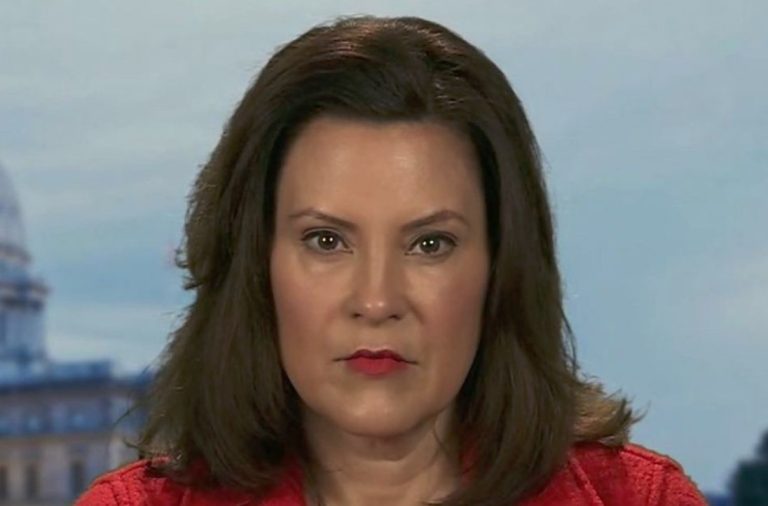
By 2032, the lights may be out in Michigan.
That's the prediction from federal regulators, regional grid officials and a new study of the impact of “net-zero” energy plans in seven Great Lakes states. [emphasis, links added]
The study, conducted by the Mackinac Center for Public Policy, analyzed power plans from 38 large investor-owned utilities in Minnesota, Wisconsin, Michigan, Illinois, Indiana, Ohio and Pennsylvania, including 32 Countries have committed to achieving net-zero emissions by 2050 or earlier.
Three states, including Michigan, have set net-zero carbon emissions goals in state law, and Gov. Gretchen Whitmer signed legislation in November 2023 targeting net-zero carbon emissions by 2050. Zero carbon emissions.
“The problem is the decline in dispatchable resources like coal and natural gas,” federal energy regulator Mark Christie said in congressional testimony last year. “The core of the problem is actually very simple. We are phasing out dispatchable (quick-start) generation resources (coal and natural gas) too quickly and in large quantities, threatening our ability to maintain power.
Kristi muses: “Will the lights stay on? We are indeed in a moment of serious questioning.
A report by Mackinac Center research analyst Joshua Antonini and director of energy and environmental policy Jason Hayes argues that shorting the Great Lakes power grid provides an answer that no one wants to hear and few are paying attention to.
“The Mid-Continent Independent System Operator (the grid operator in most of the Midwest) expects By 2032, none of the five Great Lakes states within its territory will have enough electricity capacity to meet the most conservative demand load forecasts”, according to the executive summary.
“A major part of the net-zero plan is to build massive amounts of new wind and solar power. Despite these additions, MISO expects overall grid capacity to decrease,” the researchers wrote.
“That's because States and utilities are simultaneously shutting down coal-fired power plants and some natural gas and nuclear facilities. However, wind and solar power generation depends on the weather, so reliability can suffer.“
power failure [Michigan] As a result of these poor decisions, the country will inevitably suffer.
The report provides a detailed analysis of the situation in each state, provides an overview of climate plans, and examines the current and future energy production status of each major utility company and the state as a whole.
“If MISO's information is accurate, Michigan will face widespread generation shortfalls by 2027, with deficits widening by 2032 and 2042”, according to reports.
“Michigan’s energy policy is doomed. The state’s net-zero emissions mandate and requirements for wind and solar energy put pressure on reliable resources. Michigan's goals are among the most aggressive in the Great Lakes region,” the state's summary reads. “At the same time, major utility companies are mostly moving in unison toward similar goals. Given these poor decisions, it was inevitable that the state would suffer power outages.“
But it’s not just capacity and reliability issues related to climate goals, and the increased demand for electric vehicles and large artificial intelligence data centers.
The Great Lakes Grid report released in August is another report from the nonprofit think tank that details the less reliable service consumers will need as a result of the MI health climate plan approved by Whitmer and her Democratic allies who control the Legislature. And the cost paid.
“These regulations will increase energy costs by $1,500 to $2,750 per home,” According to the Mackinac Center. “The move away from reliable and affordable electricity service will By 2050, Michigan people will lose between $206 billion and $386 billion.“
These predictions have already emerged The state's largest utilities and other companies continued to raise rates.
last year, The Michigan Public Service Commission approved a $368 million price increase for DTE, which is seeking another $456.4 million from ratepayers this year. Although research shows that Michigan Some of the most unreliable services in the country.
DTE President Matt Paul told the Detroit Free Press in March that the pending $465 million request “is very important for us to continue the work we need to do to build the grid of the future and continue to improve reliability in the state.”
The same goes for Consumers Energy, another large Michigan utility. A $92 million electricity rate increase was approved in March, and another $303 million in electricity rate increases were requested two months later.
“Consumers Energy also seeks Generated an additional $21.8 million from tax paying customers through separate 12-month customer surcharges Certain deferred expenses beginning in March 2025,” according to the Michigan Attorney General's Office.
While energy experts warn of the many negative consequences of a government-mandated shift to “green” energy, The people piloting the ship still seem convinced they are saving the planet.
“Michigan is committed to [leading] “A future of clean energy and climate action allows us to lower utility costs for families, create good-paying jobs, and grow our advanced manufacturing economy,” Whitmer said at the MI Healthy Climate Conference in May.
While energy experts say this is not the case, The situation is also complicated by substantial contributions from DTEs and consumers to the MPSC and legislators.
All this constitutes a vision of a future completely dependent on “green” energy, which has become people's nightmare Like retired nurse Donna Riggs, who was left fighting for her life when her oxygen machine lost power.
According to MLive , Riggs called DTE the last time the power went out (the eighth in two years) to ask for priority to restore power, but was told it was because she couldn't ride in an ambulance she wasn't eligible for.
Read “Break” by The Midwesterner
